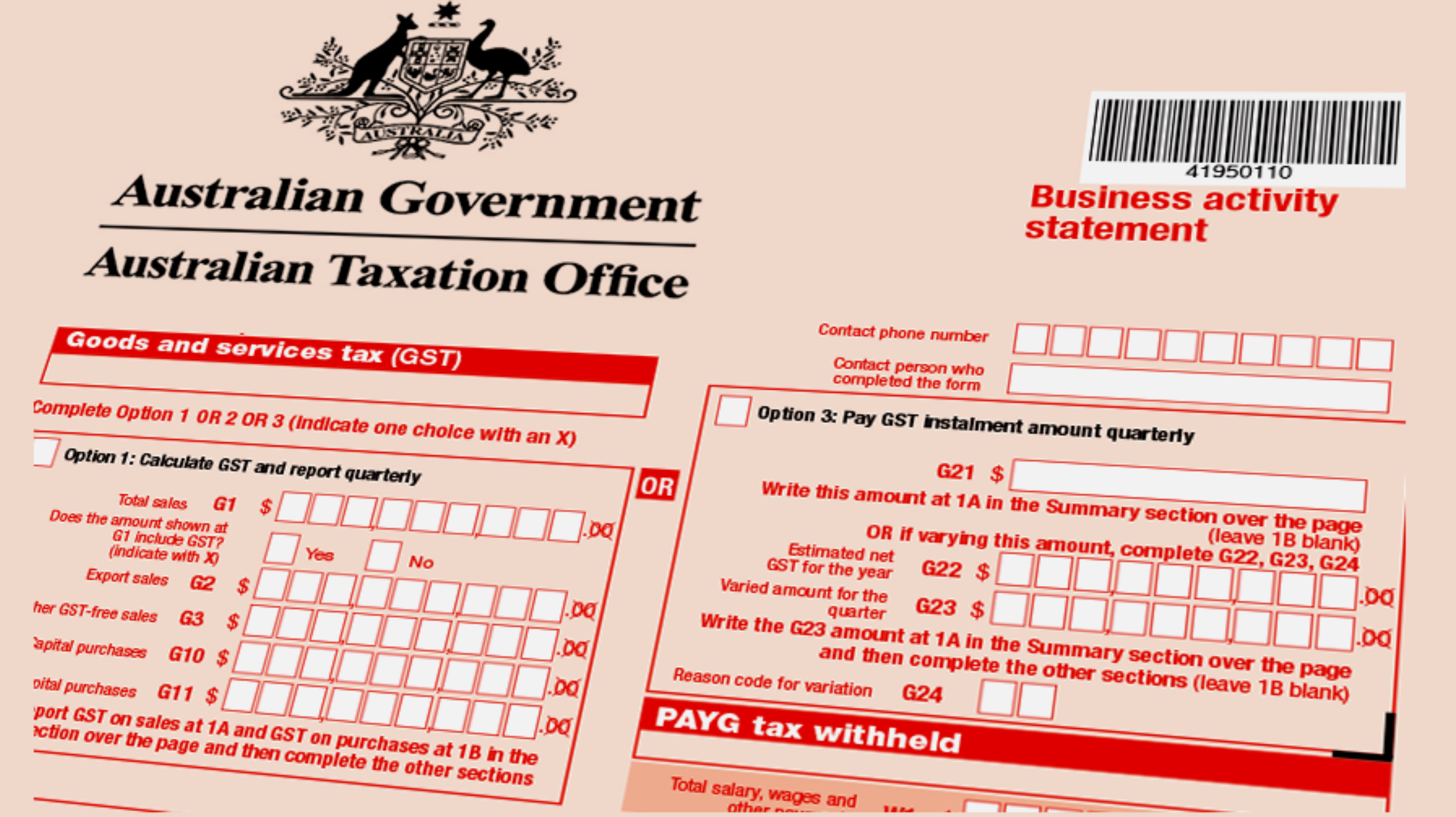Running a business in Australia comes with numerous responsibilities, one of the most crucial being the lodgement of Business Activity Statements (BAS). BAS lodgement is a key aspect of business compliance, required by the Australian Taxation Office (ATO). Whether you’re a small business owner, a sole trader, or manage a large corporation, understanding how to properly lodge your BAS is essential. This comprehensive guide covers everything you need to know about BAS lodgement, from the basics to advanced strategies to ensure you stay compliant and avoid penalties.
What is BAS Lodgement?
BAS, or Business Activity Statement, is a form that businesses must submit to the ATO to report and pay several tax obligations, including Goods and Services Tax (GST), Pay As You Go (PAYG) instalments, PAYG withholding tax, and other taxes. Lodging your BAS correctly and on time is crucial for maintaining compliance with Australian tax laws.
BAS lodgement is not just a legal requirement; it’s a crucial part of managing your business finances. Failing to lodge BAS on time can lead to severe penalties, interest charges, and even legal action from the ATO. Moreover, accurate BAS lodgement helps you maintain a clear financial picture of your business, ensuring you’re aware of your tax obligations and liabilities.
How to Lodge BAS: Step-by-Step Guide
Lodging your Business Activity Statement (BAS) is a crucial task for any business. This guide provides a detailed, step-by-step breakdown of how to accurately lodge your BAS, including all the necessary steps to calculate the figures required for your BAS form. Following this guide will help ensure that your lodgement is accurate and compliant with Australian Taxation Office (ATO) regulations.
1. Gathering Essential Information
Before you begin the process of lodging your BAS, it’s essential to gather all the relevant financial data. This data will form the basis of the numbers you report on your BAS. Key information includes:
- Sales Records: Ensure you have a complete record of all sales made during the BAS reporting period. This should include both taxable sales and any GST-free sales.
- Expense Receipts: Collect all receipts for business expenses, particularly those where GST was paid. This will be necessary for claiming GST credits.
- Payroll Information: If you have employees, you’ll need detailed records of wages paid and any PAYG withholding obligations.
- Bank Statements: These help to cross-check your income and expenses, ensuring all transactions have been recorded accurately.
- Previous BAS Statements: Reviewing past BAS lodgements can help in ensuring consistency and accuracy, especially if there have been any corrections or adjustments.
2. Choosing the Lodgement Method
Deciding on the method to lodge your BAS is an important step, and you have several options:
- Online Lodgement: This is the most common and efficient method, allowing you to lodge directly through the ATO’s Business Portal or through your accounting software. Most accounting platforms integrate seamlessly with the ATO, allowing for easy submission.
- Manual Lodgement: While less common, some businesses prefer to lodge their BAS manually by filling out a paper form. This method requires mailing the form to the ATO, and it’s crucial to account for postal delays.
- Using a BAS Agent: If you’re unsure about the process or have complex tax obligations, hiring a registered BAS agent can be a smart move. They can handle the lodgement on your behalf, ensuring accuracy and compliance.
3. Calculating the BAS Numbers
The heart of BAS lodgement is accurately calculating the amounts to be reported. Here’s a detailed guide on how to calculate the key figures required for your BAS:
a. Goods and Services Tax (GST) Reporting
1. Calculate GST on Sales (G1):
- Step 1: Add up the total value of all sales made during the reporting period. Include both cash and credit sales.
- Step 2: Identify which of these sales were subject to GST. Only include taxable sales in the G1 figure.
- Step 3: Multiply the total taxable sales amount by 1/11 to calculate the GST portion. This figure represents the GST collected on your sales.
Example:
- Total sales: $110,000
- GST on sales (G1): $110,000 ÷ 11 = $10,000
2. Calculate GST on Purchases (G10):
- Step 1: Total all business expenses for the period where GST was paid. Ensure these are legitimate business expenses.
- Step 2: Identify the GST component of these purchases. If the GST is not clearly stated on the invoice, calculate it by dividing the expense by 11.
- Step 3: Sum the GST amounts from all eligible purchases. This figure represents the GST credits you can claim.
Example:
- Total expenses: $55,000
- GST on purchases (G10): $55,000 ÷ 11 = $5,000
3. Calculate Net GST Payable or Refundable:
- Step 1: Subtract the GST on purchases (G10) from the GST on sales (G1).
- Step 2: If the result is positive, this is the amount payable to the ATO. If negative, this is the amount the ATO owes you as a refund.
Example:
- GST on sales: $10,000
- GST on purchases: $5,000
- Net GST payable: $10,000 – $5,000 = $5,000
b. Pay As You Go (PAYG) Withholding Reporting
1. Total Wages Paid:
- Step 1: Calculate the total gross wages paid to employees during the reporting period. This includes salary, wages, bonuses, and other taxable income.
- Step 2: Ensure that this total is consistent with your payroll records and any reports generated by your payroll software.
2. PAYG Withholding Amounts (W2):
- Step 1: Calculate the total amount of PAYG withholding tax that has been deducted from employees’ wages. This should align with your payroll records.
- Step 2: Report this figure in the PAYG withholding section of your BAS.
Example:
- Total wages paid: $50,000
- PAYG withholding: $7,500
c. Pay As You Go (PAYG) instalments
Some businesses are required to make PAYG income tax instalments. This is essentially prepaying your income tax liability in instalments.
1. ATO instalment Amount (T7):
- The ATO will provide you with an instalment amount based on your last tax return. You’ll report and pay this amount on your BAS.
2. Adjusting PAYG instalments:
- If you believe the ATO’s instalment amount is too high or too low, you can vary it by completing the instalment variation section (T8) of your BAS. Be cautious, as underestimating your PAYG instalment can result in penalties.
4. Completing the BAS Form
With all calculations in hand, you can now complete the BAS form. Each section corresponds to the amounts you’ve calculated:
- G1: Total sales
- 1A: GST on sales (from G1)
- 1B: GST on purchases (from G10)
- W1: Total wages paid
- W2: PAYG withholding
- T1: PAYG instalment income (if applicable)
- T7: PAYG instalment amount (if applicable)
Ensure all sections are filled out correctly, and double-check your numbers to avoid errors. Any mistakes can lead to complications and potential penalties.
5. Submitting Your BAS
Once the BAS form is complete, you’re ready to submit it:
- Online: If lodging online, simply follow the prompts on the ATO’s Business Portal or your accounting software. You’ll receive instant confirmation of your lodgement.
- Manual: If lodging manually, ensure the form is mailed well before the due date to avoid delays.
6. Making a Payment to the ATO
If your BAS indicates that you owe money to the ATO:
- Payment Methods: You can pay via BPAY, bank transfer, or credit card. Make sure to use the correct payment reference number provided by the ATO.
- Due Dates: Payments must be made by the due date to avoid interest charges or penalties.
BAS Lodgement Due Dates and Penalties
Keeping track of your BAS due dates is essential for maintaining business compliance and avoiding penalties. The due dates differ based on your reporting frequency.
Quarterly Lodgement Deadlines: Businesses that report quarterly must lodge their BAS by the 28th day after the end of each quarter. For the 2024 financial year, the due dates are:
- Q1: April 28, 2024
- Q2: July 28, 2024
- Q3: October 28, 2024
- Q4: January 28, 2025
If a due date falls on a weekend or public holiday, you can lodge and pay on the next business day.
Monthly Lodgement Deadlines: For businesses required to lodge monthly, the BAS is due on the 21st day of the month following the reporting period. In 2024, these deadlines are:
- January 2024 BAS: Due February 21, 2024
- February 2024 BAS: Due March 21, 2024
- March 2024 BAS: Due April 21, 2024
This pattern continues through the year, with the December 2024 BAS due by January 21, 2025. If the 21st falls on a weekend or public holiday, the deadline extends to the next business day.
Annual Lodgement Deadlines: If your business qualifies for annual reporting, your BAS for the entire 2024 financial year is due by February 28, 2025. If you work with a tax or BAS agent, you might have an extended due date. Be sure to confirm your specific deadline with your agent or the ATO.
Penalties for Late BAS Lodgement
The ATO imposes penalties for late BAS lodgement. These penalties can accumulate quickly, especially for ongoing non-compliance. The penalties include:
- Failure to Lodge (FTL) Penalty: Calculated based on the size of your business and the length of the delay.
- General Interest Charge (GIC): Applied to any outstanding amounts owed to the ATO, accruing daily until the debt is paid.
How to Avoid Penalties
To avoid penalties, it’s essential to:
Seek extensions if needed: If you’re unable to lodge on time, contact the ATO to request an extension.
Lodge BAS on time: Mark your calendar with all relevant BAS lodgement dates.
Keep accurate records: Ensure all financial records are up-to-date to avoid errors and delays.
- Lodge BAS on time: Mark your calendar with all relevant BAS lodgement dates.
- Keep accurate records: Ensure all financial records are up-to-date to avoid errors and delays.
- Seek extensions if needed: If you’re unable to lodge on time, contact the ATO to request an extension.
7 Common Mistakes in BAS Lodgement and How to Avoid Them
Lodging BAS accurately is vital, but there are several common mistakes that businesses often make. Understanding these pitfalls and how to avoid them can save your business from unnecessary penalties and complications.
1. Incorrect GST Reporting
a. Over-Reporting GST:
One of the most common mistakes is over-reporting GST on sales. This often occurs when businesses mistakenly include GST-free sales or non-taxable income in the total GST figure. Over-reporting leads to higher GST liability than necessary, affecting your cash flow.
How to Avoid:
- Double-Check Sales: Ensure you correctly categorise sales as either taxable, GST-free, or input-taxed before calculating GST.
- Use Accounting Software: Most accounting software will automatically calculate GST on sales, reducing the risk of error. Ensure your software is set up correctly.
b. Under-Reporting GST:
Under-reporting occurs when businesses fail to include all taxable sales in their GST calculations. This can happen due to oversight or poor record-keeping and can result in significant penalties from the ATO.
How to Avoid:
- Regular Reconciliation: Regularly reconcile your sales records with bank statements to ensure all taxable sales are reported.
- Professional Assistance: Consider using a BAS agent or accountant to review your BAS before lodgement, especially if your business has complex transactions.
2. Errors in PAYG Withholding Reporting
PAYG withholding errors are common, particularly in businesses with multiple employees or complex payrolls.
a. Miscalculating PAYG Withholding:
Miscalculations often occur when businesses do not accurately calculate the amount of tax that should be withheld from employee wages. This can lead to either underpayment or overpayment of tax, both of which have consequences.
How to Avoid:
- Up-to-Date Payroll Software: Use payroll software that automatically calculates PAYG withholding based on the latest tax rates.
- Regular Payroll Audits: Conduct regular audits of your payroll to ensure accuracy in PAYG withholding calculations.
b. Failing to Include All Employees:
Sometimes businesses forget to include all employees in their PAYG withholding reports, especially if they have casual or part-time workers.
How to Avoid:
- Comprehensive Payroll Management: Ensure your payroll system includes all employees, regardless of their employment status. Regularly review your employee list to ensure completeness.
3. Failing to Lodge on Time
Missing the BAS lodgement deadline is a common mistake that can result in penalties and interest charges. This often happens when businesses are overwhelmed or disorganised.
How to Avoid:
- Set Reminders: Use digital calendars or accounting software to set reminders well before the BAS due date.
- Plan Ahead: Start preparing your BAS early in the reporting period to avoid last-minute stress.
- Consider BAS Agents: If you consistently struggle to lodge on time, a BAS agent can manage the process for you, ensuring timely submission.
4. Claiming Incorrect GST Credits
Another frequent error is claiming GST credits on purchases that are not eligible. This can happen if you’re not clear on which purchases qualify for GST credits.
How to Avoid:
- Review Purchase Invoices: Ensure that GST is clearly stated on purchase invoices before claiming credits.
- Understand GST-Free Items: Familiarise yourself with which expenses are GST-free and do not qualify for credits.
5. Inaccurate Record-Keeping
Poor record-keeping is at the root of many BAS lodgement errors. Inaccurate or incomplete records can lead to incorrect figures being reported on your BAS.
How to Avoid:
- Consistent Record Maintenance: Regularly update your financial records and ensure all transactions are accurately recorded.
- Use Digital Solutions: Implement accounting software that automatically tracks and categorises transactions. This reduces the risk of errors and makes it easier to prepare your BAS.
6. Not Reconciling Before Lodgement
Failing to reconcile your financial records before lodging your BAS can lead to discrepancies between what’s reported and your actual business activity.
How to Avoid:
- End-of-Period Reconciliation: Before lodging your BAS, reconcile your bank statements, sales records, and expense reports to ensure everything matches.
- Seek Professional Help: If reconciliation isn’t your strong suit, consider getting help from an accountant or bookkeeper to ensure accuracy.
7. Incorrect Reporting Periods
Reporting transactions from the wrong period is another common mistake. This can happen when businesses are unsure of the correct reporting period or accidentally include transactions from outside the current BAS period.
How to Avoid:
- Clearly Define Periods: Ensure that your accounting system clearly delineates the reporting periods, and only include transactions that fall within the correct dates.
- Check Cut-Off Dates: Be aware of cut-off dates for transactions and ensure they are recorded in the correct period.
By understanding and avoiding these common mistakes, you can ensure that your BAS lodgement process is smooth, accurate, and compliant with ATO regulations. This not only helps avoid penalties but also ensures your business maintains a healthy financial standing.
BAS Lodgement Services: Do You Need Professional Help?
Hiring a BAS Agent
For many businesses, especially those with complex financial situations, hiring a BAS agent can be a wise decision. A BAS agent is a registered professional who specializes in preparing and lodging BAS. They ensure that all information is accurate and that lodgements are made on time, reducing the risk of errors and penalties.
Hopkan Partners have been helping businesses saving time and avoiding penalties.
Benefits of Professional BAS Lodgement
- Expertise and Accuracy: BAS agents have specialized knowledge of tax laws and BAS requirements, ensuring your lodgements are accurate and compliant.
- Time-Saving: Outsourcing BAS lodgement frees up your time, allowing you to focus on running your business.
- Penalty Avoidance: BAS agents can help you avoid costly penalties by ensuring timely and correct lodgement.
Cost of BAS Lodgement Services
The cost of hiring a BAS agent varies depending on the complexity of your business’s financial situation. While there is a cost associated with professional BAS lodgement, it can be a worthwhile investment, especially if it helps you avoid penalties and saves time.
BAS Lodgement Tools and Resources
Accounting Software
Using accounting software can simplify the BAS lodgement process. Popular software options in Australia include:
These platforms allow you to track GST, PAYG, and other tax obligations in real time, making BAS lodgement straightforward and efficient.
ATO BAS Lodgement Portal
The ATO’s Business Portal is an online platform where businesses can lodge their BAS, view previous lodgements, and manage their tax obligations. It’s a convenient tool for businesses of all sizes and is particularly useful for those who prefer online lodgement.
Guides and Tutorials
The ATO website offers a range of guides and tutorials to help businesses understand their BAS obligations and how to lodge correctly. These resources are invaluable for business owners who prefer to manage BAS lodgement themselves.
Summary
BAS lodgement is a critical responsibility for Australian businesses, one that requires careful attention to detail and a solid understanding of tax obligations. By following the steps outlined in this guide, you can ensure that your BAS is lodged correctly and on time, helping you avoid penalties and stay compliant with the ATO.
Whether you choose to lodge your BAS yourself or hire a professional BAS agent, the key is to stay informed and proactive. Use the tools and resources available to you, keep accurate records, and never miss a deadline. By doing so, you’ll maintain a healthy financial standing for your business and avoid any unnecessary stress related to tax compliance.
Need Help with BAS Lodgement? Contact our BAS experts today for personalised assistance and ensure your business stays on the right track.
If you’re feeling overwhelmed by your BAS obligations, don’t hesitate to seek help. Contact us today for a free consultation with one of our experienced BAS agents. We’ll guide you through the process, ensure accurate lodgement, and help you avoid costly penalties. Let us handle your BAS, so you can focus on growing your business.





